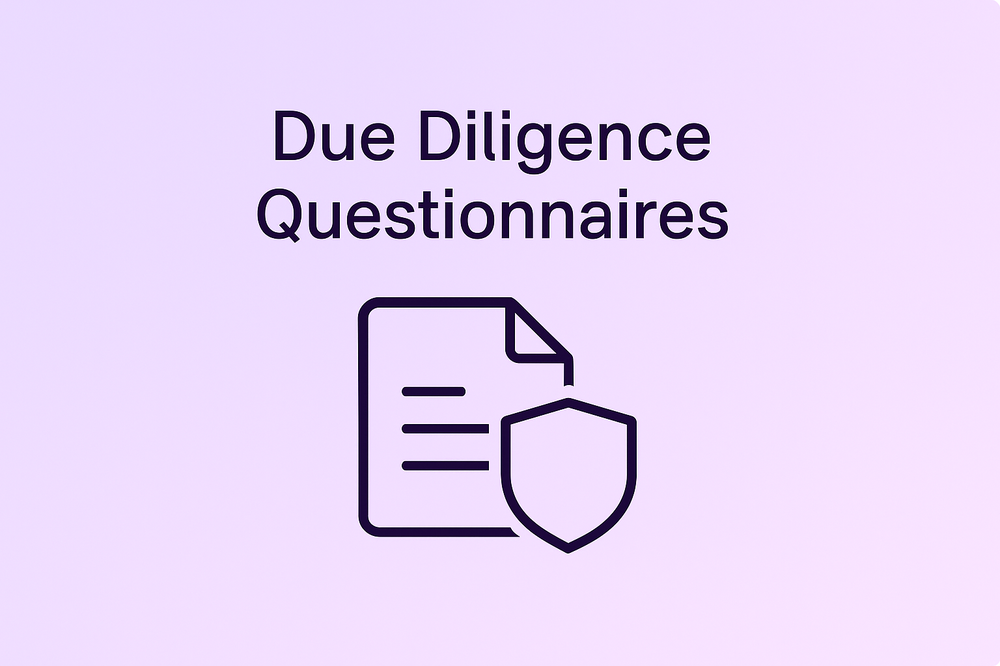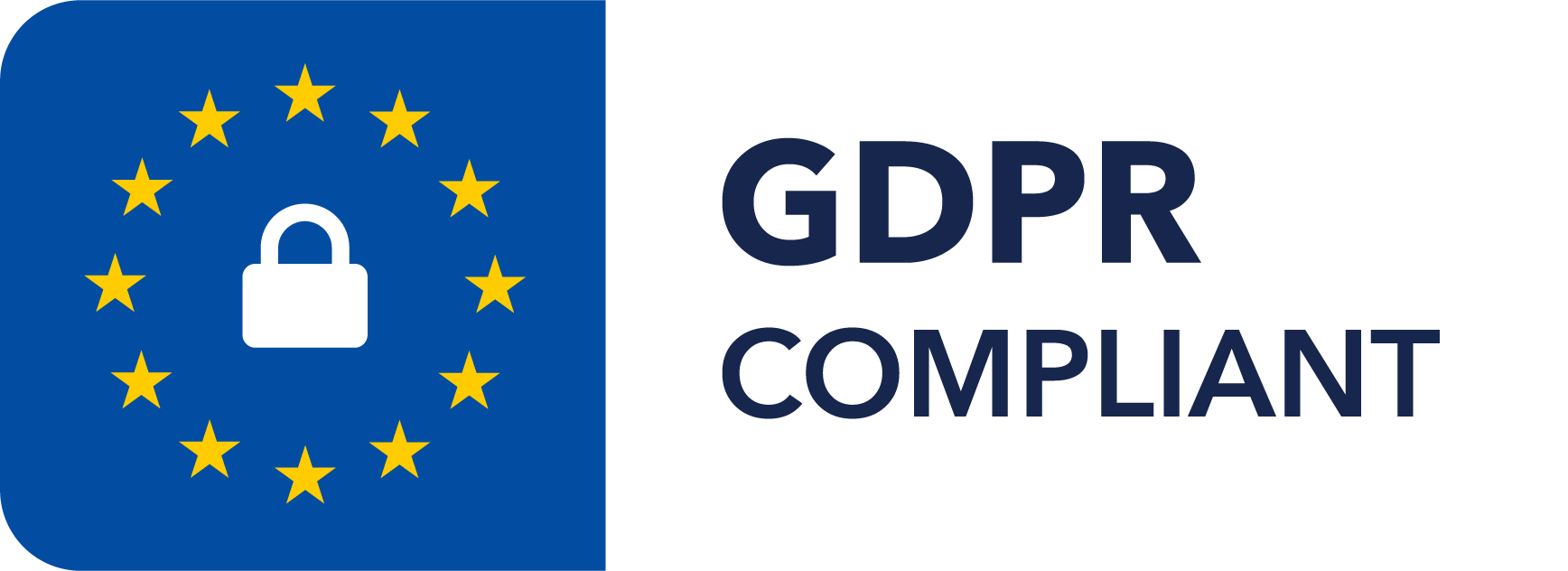What Is a Due Diligence Questionnaire (DDQ)?

What Is a Due Diligence Questionnaire (DDQ)?
A Due Diligence Questionnaire (DDQ) is a structured document organizations use to assess a vendor’s business practices, financial stability, compliance posture, and operational maturity before entering a commercial relationship.
DDQs validate that a vendor is reliable, secure, compliant, and capable of delivering on its commitments — making them a core part of vendor onboarding and procurement.
Unlike a security questionnaire, which focuses primarily on cybersecurity controls, DDQs offer a holistic assessment across legal, financial, operational, and governance areas.
DDQs are commonly required during procurement, enterprise onboarding, or partnership evaluations, and may include hundreds of questions across risk domains such as data protection, business continuity, regulatory compliance, and insurance coverage.
Learn how automation streamlines DDQs in our blog:
What Is Proposal Automation?
Purpose of a Due Diligence Questionnaire
The goal of a DDQ is to confirm that a vendor operates responsibly and meets business, regulatory, and risk standards before signing a contract.
DDQs help organizations:
- Verify security and compliance posture
- Assess operational processes and internal controls
- Evaluate financial health and business continuity
- Understand vendor risk and regulatory exposure
- Build confidence before onboarding a business-critical supplier
Many companies also conduct annual vendor reviews to confirm ongoing compliance and track risk over time.
Learn how Iris Pro accelerates this in our article:
RFP Automation for SaaS Companies
Common DDQ Frameworks & Standards
DDQs often leverage industry-recognized guidelines that promote consistency and reduce friction between buyers and vendors.
Common frameworks and sources include:
- AICPA Trust Services Criteria
- ISO 27001 governance and risk controls
- NIST Cybersecurity Framework
- Financial and compliance reporting standards (e.g., SOX)
- Industry-specific requirements for healthcare, government, and finance
Standardization helps ensure vendors meet consistent criteria across industries and risk profiles.
Why DDQs Matter
Effective DDQ processes help organizations:
- Reduce third-party risk exposure
- Meet compliance and regulatory requirements
- Build trust in vendor relationships
- Avoid costly business interruptions or data exposure
- Shorten procurement cycles through repeatable review processes
For vendors, strong DDQ responses — supported by policies, evidence, and automation — help accelerate deal cycles and improve buyer confidence.
Explore how AI supports this in our post:
Proposal Automation and Why the Human Element Still Matters
How Iris Pro Helps
Iris Pro automates and accelerates DDQ completion by:
- Parsing DDQs from spreadsheets, PDFs, portals, and documents
- Auto-suggesting answers using approved compliance data
- Maintaining a living knowledge base of verified responses
- Mapping language to frameworks like SOC 2, ISO, and NIST
- Streamlining internal review and legal/compliance approvals
- Ensuring accuracy and language consistency across teams
With Iris, revenue and security teams respond to DDQs faster and with higher confidence — eliminating manual copy-paste cycles and reducing turnaround time.
Learn more in our related article:
SOC 2 Explained: What It Is and Why It Matters (once published)
Best Practices for Managing DDQs
To streamline DDQ management, teams should:
- Maintain a centralized, version-controlled knowledge base
- Update answers regularly to reflect evolving controls
- Standardize language and link to verified evidence
- Create internal ownership workflows for each question category
- Integrate automation tools like Iris Pro to scale across questionnaires
Frequently Asked Questions
Why do buyers use a Due Diligence Questionnaire (DDQ)?
A DDQ helps organizations thoroughly vet a prospective vendor before entering a partnership. It confirms the vendor’s business practices, financial stability, security controls, and compliance measures — ensuring the vendor is responsible, trustworthy, and low-risk across all critical areas.
How is a DDQ different from a security questionnaire?
A security questionnaire focuses solely on cybersecurity and data protection. A DDQ is broader, covering legal, financial, operational, governance, and security-related topics to create a full vendor risk profile. In short, a DDQ offers a holistic assessment that goes beyond IT security alone.
When in the process is a DDQ typically required?
DDQs are generally required during vendor selection or onboarding for enterprise deals. After a vendor is shortlisted — often following an RFP win — procurement or risk teams issue a DDQ before finalizing the contract. Some organizations also require vendors to complete a DDQ annually as part of ongoing risk management.
What topics does a standard DDQ cover?
DDQs are comprehensive and typically include sections on security and privacy controls, regulatory compliance, financial stability and insurance, business continuity and disaster recovery plans, and key operational processes and policies. This breadth ensures the vendor meets all risk, compliance, and reliability standards.
















